Coming up next is 1952's "The Prisoner Of Zenda", a remake of the 1937 feature of the same name which tells the story of a man who is an identical lookalike of the king of a European country. The man must take the king's place when he is poisoned and subsequently kidnapped.
The film's cast includes Stewart Granger, Deborah Kerr, Louis Calhern, Jane Greer, Lewis Stone, Robert Douglas, Robert Coote, and James Mason.
Englishman Rudolf Rassendyll has come to a small European country for a fishing holiday. Everyone he meets notices an uncanny resemblance to their king, Rudolf V, who is due to be crowned in a grand coronation the next day.
The king himself meets Rassendyll and likes him immensely (in reality they are distantly related). The two of them spend the evening before the coronation talking and drinking.
The king's advisors, Col. Zapt and Fritz von Tarlenheim, suspect that the king's illegitimate brother, Michael, is responsible for the fiendish act. They implore Rassendyll to stand in as the king in order to give them time to get to the bottom of Michael's actions.
As Fritz makes sure the king is safe, he says "Sleep well, Your Majesty. We go to see you crowned", and they all head off to the coronation.
Meanwhile, the king's brother Michael is busy with plans for his coup. His mistress Antoinette de Mauban wants Michael to forget the jealousy he feels for his brother and live a quiet life with her. He refuses.
He also has his henchman, Count Rupert of Hentzau, on hand to make sure all goes off according to plan.
They are both shocked when the "king" appears in time for the coronation. Michael has no choice but to bow to his sovereign, though he sends Count Rupert off to find out what went wrong.
It's at the coronation that Rassendyll meets the king's intended bride, Princess Flavia. Sparks fly and the two are instantly drawn to one another.
Circumstances necessitate that Rassendyll remain as the king a little longer, and he takes advantage of the time to get closer to Princess Flavia.
She, of course, is feeling the same way about him. When he asks her if she could love him even if he weren't the king, she replies, "In my heart there is no king, no crown...only you."
As in the previous film, we see Rassendyll's dealings with Antoinette de Mauban, who wants to be with Michael and will do anything to see that dream come true. She even devises a way for the king to be rescued.
When Rassendyll suddenly leaves to rescue the king, he's got to go quickly. Flavia can't understand why he's leaving when everything has been so perfect.
But, as we know, the king is rescued, Michael is killed, and Rassendyll has to do battle with Rupert of Hentzau, who escapes, vowing to return one day.
After everything is over, Rassendyll and the king meet again. King Rudolf thanks his cousin for the service he's provided, and knows now what type of king to be.
Princess Flavia bids a tearful farewell to Rassendyll, who wants her to join him. She tells him that this was the role she was born to play, and he must help her to play it.
As Col. Zapt and Fritz von Tarlenheim bid Rassendyll farewell, Fitz comments, "Fate doesn't always make the right men kings".
Cast rundown:
Stewart Granger..............................Rudolf Rassendyll/King Rudolf V
Deborah Kerr...................................Princess Flavia
Louis Calhern..................................Col. Zapt
Jane Greer......................................Antoinette de Mauban
Lewis Stone....................................The Cardinal
Robert Douglas................................Michael, Duke of Strelsau
Robert Coote...................................Fritz von Tarlenheim
James Mason..................................Count Rupert of Hentzau
And that's it for The Prisoner Of Zenda. I really liked this version much better than the 1937 version, although it's essentially the same film. Maybe it's the actors and the Technicolor aspect. Lewis Stone, who played The Cardinal in this film, originally played Rudolf Rassendyll/King Rudolf V in the 1922 silent film version. He also played the same role in the 1907 stage version.
As always, if you wish to leave a comment, please remember our posting rules.




































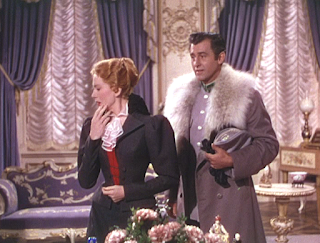




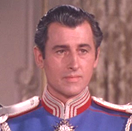


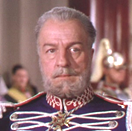

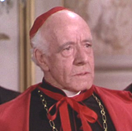

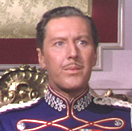
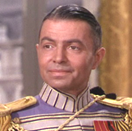

No comments:
Post a Comment